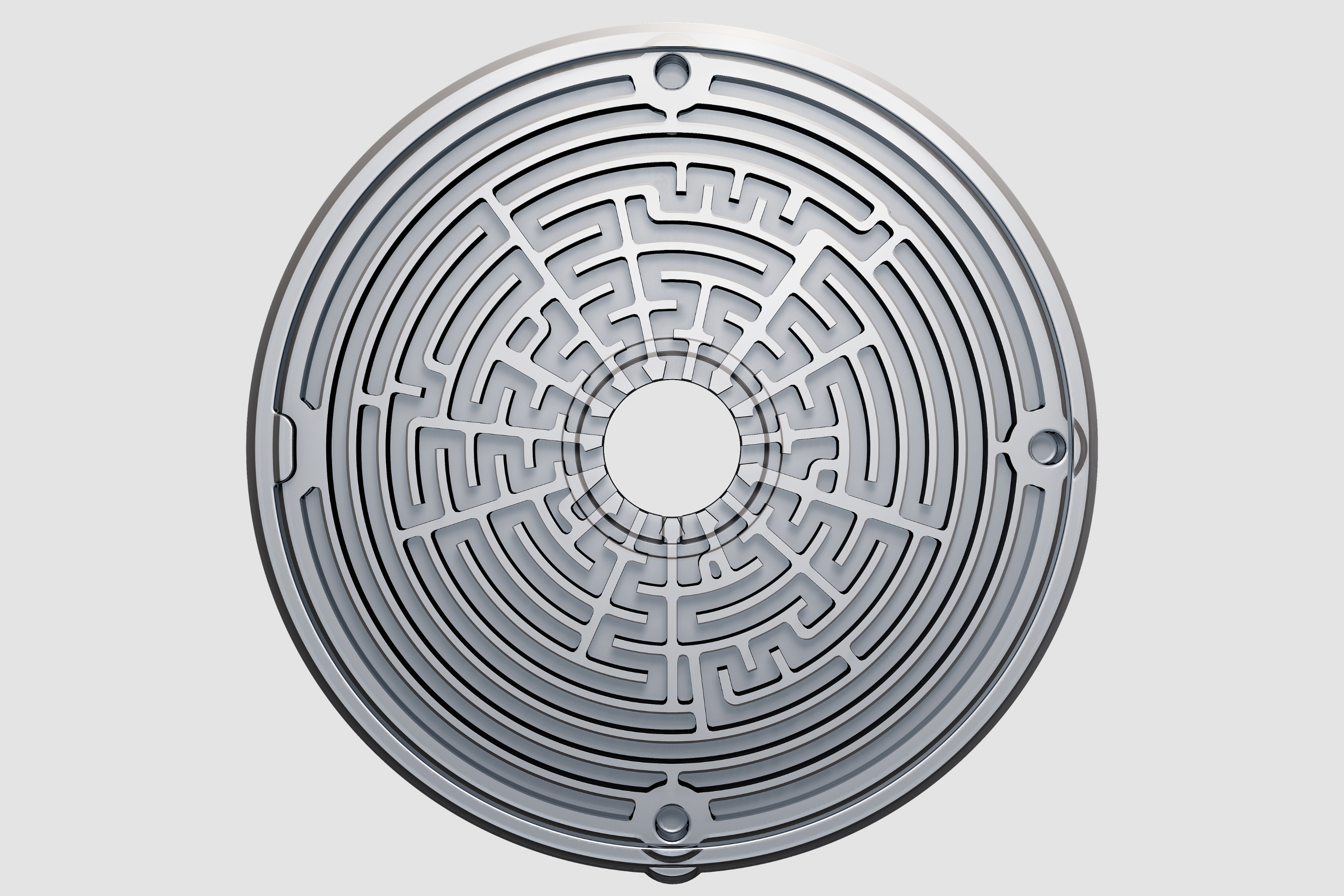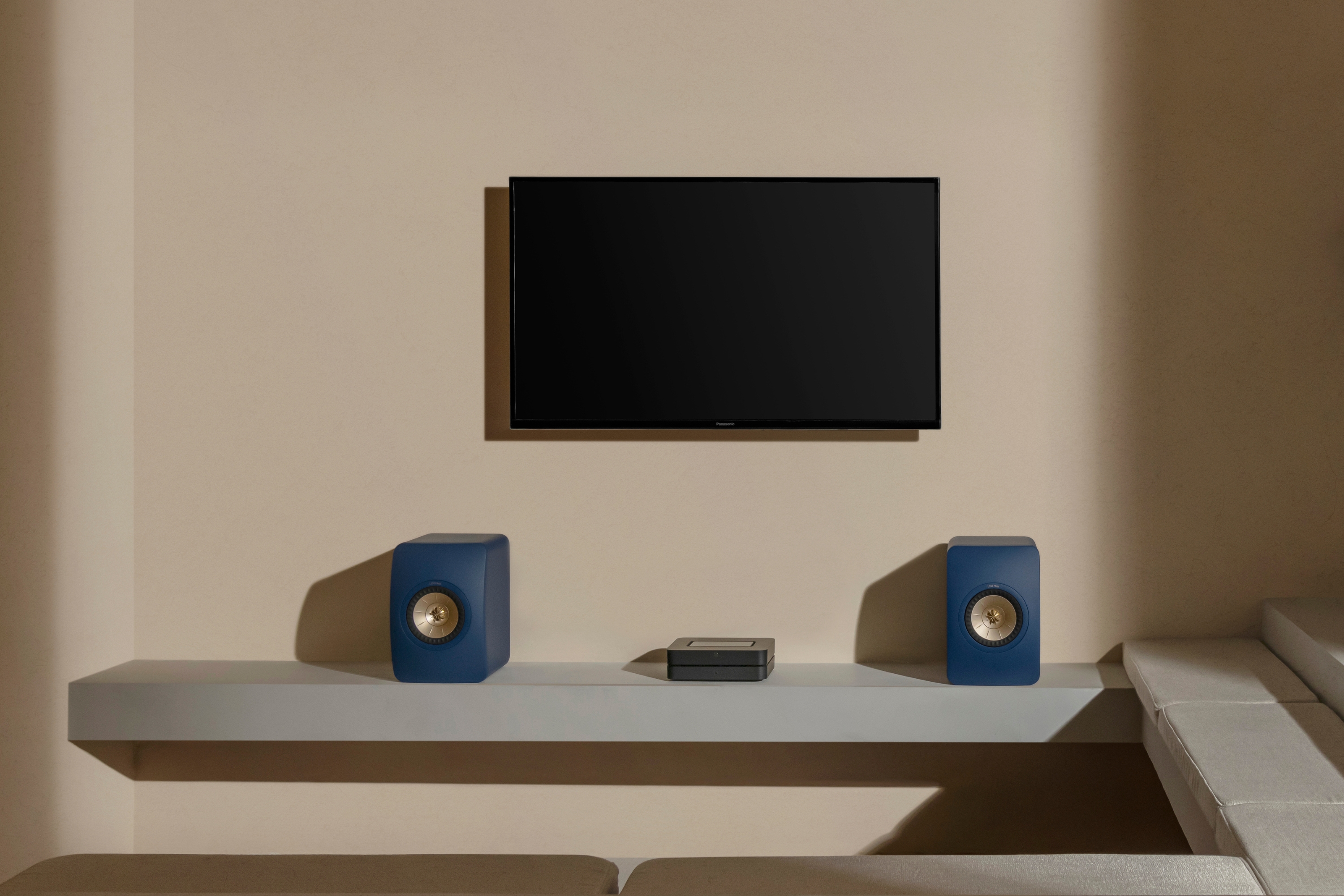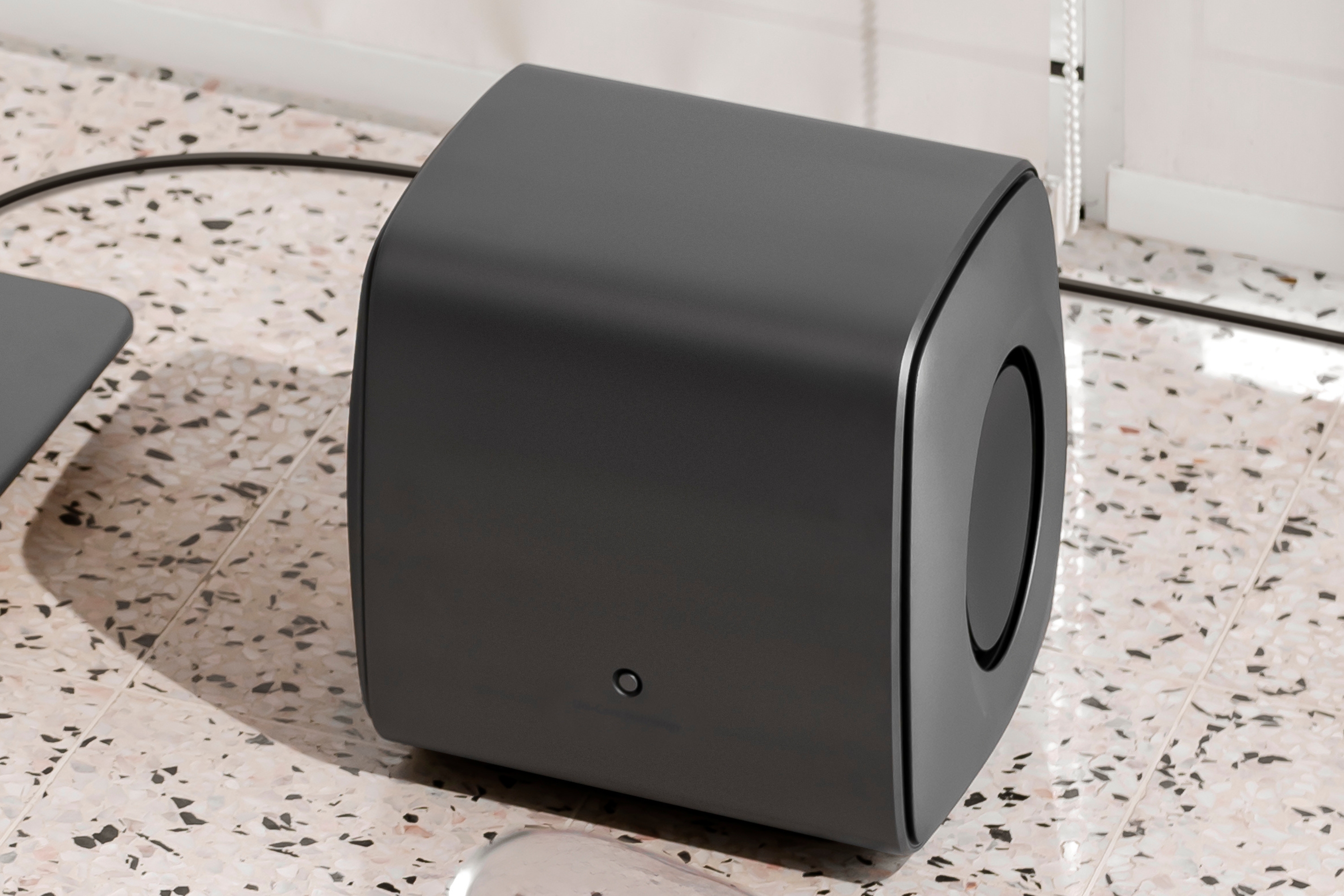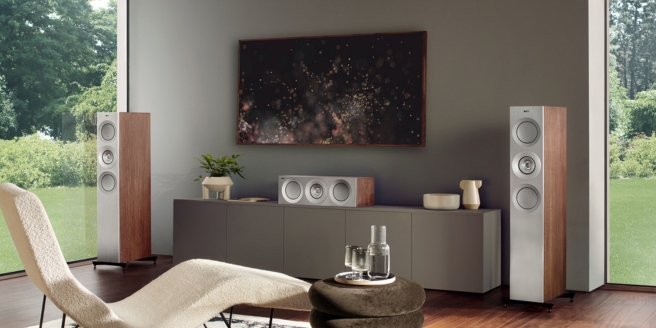Optimising your space to reduce echoes and reverberations while ensuring sound is evenly distributed is essential for unlocking the full power of your KEF wireless or HiFi speakers. This blog will guide you through the science of acoustic treatment, helping you create the perfect environment to enjoy your speakers at their best, whether in a home cinema, recording studio or your living room - this can be applied to any space where sound matters. Read on to discover the secrets behind sound diffusion vs absorption.
Early Access for myKEF members
SIGN IN TO SHOPHow Acoustic Absorption Works and When to Use It
So, what is absorption? Audio absorption does what it says on the tin. It’s a way of reducing sound bouncing off surfaces which causes echo and reverberation.
If you imagine a sponge soaking up water, sound absorption works in much the same way - but with materials absorbing sound waves instead of water. Just as you would measure the amount of water a sponge can soak up in millilitres, you can measure the effectiveness of materials holding in sounds in Sabins (the unit used to measure sound absorption).
The best materials for sound absorption are usually open-celled foams, fibrous materials and heavy fabrics like velvet and wool. Porous materials have countless tiny air pockets - like a sponge - where sound waves enter, become trapped and lose their energy, stopping the sound wave in its tracks.
Dense materials are often used in furnishings to help absorb sound waves. Take heavy curtains, made from velvet or wool. Their soft, porous texture absorbs sound waves, while their folds and pleats create a secondary barrier. The air resistance they create dissipates more of the sound energy, creating a highly effective sound absorber.
Our speakers feature our innovative Metamaterial Absorption Technology to absorb as much of the unwanted sounds caused by ...frequencies emitted by the tweeter and midrange driver into the speaker cabinet. Find out how this technology has revolutionised KEF speakers.

The Science Behind Acoustic Diffusion
If you’ve found yourself wondering what diffusion is, in a nutshell, it’s the art of reshaping how sound waves interact with surfaces, creating a more even distribution of sound. Picture a disco ball scattering light around a room - audio diffusion works in the same way, spreading sound waves evenly to prevent hotspots and echoes. With effective diffusion, sound takes a voyage around your room, with diffusion guiding its path.
Absorption vs Diffusion: Technical Differences and Applications
Materials. Deep, textured materials like dense foams and lush fabrics work best for absorption, hugging every stray sound into silence. Diffusion panels are made from solid materials usually with intricate geometric patterns to scatter sound, making sure it dances evenly across a room.
Frequency. Absorption is most effective on higher frequency ranges. Diffusion affects quite a broad range of frequencies, which is dependent on the shape and depth of your diffuser.

Applications
A lot of acoustic spaces require a combination of absorption and diffusion. Building the perfect audio set up depends on the environment and requirements of the space.
Recording studios
Recording studios are a space where every sound should be a masterpiece, with speakers like the KEF LS50 Meta delivering unparalleled clarity. They rely on foam-lined walls and other absorptive materials to reduce echoes and reverberation. Bass traps are commonly used to handle low-frequency sounds and help clarify sound. Diffusion panels add balance, keeping the sound lively and dynamic rather than dampened.
Home theatres
Your home cinema should envelop you in sound - immersive, perfectly balanced and crystal clear. Home theatre systems featuring speaker models such as the KEF Q series provide balanced and powerful audio, bringing movies to life. To work alongside these, you can install absorption panels on reflective points to reduce early reflections, achieving a balance where dialogue sounds as clear as if whispered in your ear. Usually, you would look to install diffusers on the rear and side walls, this arrangement helps create a natural, expansive surround sound.
Commercial spaces
In busy spaces, you can use absorption to minimise noise levels, making it less overwhelming and easier to hold conversations. Intuitive design incorporating effective diffusion in open spaces helps prevent sound clustering in hotspots.
Theatres
Every performance is a journey through expertly scattered sounds, regardless of your seat number. Diffusion plays a key role in theatres and concert halls to enhance ambience by scattering sound waves to make it feel like the sound is coming from every direction. Orchestra pits, for example, are often equipped with diffusing panels and surfaces to effectively scatter the sound waves from the instruments across the whole audience.
Speaker placement plays an important role in the quality of sound in your room, see our 10 tips for speaker placement to make sure you’ve got it right.

How to Measure and Address Acoustic Issues in Your Space
Start by pinpointing the problem: Are echoes and reverberations disrupting the space? Excessive noise levels? The human ear isn’t always the best at picking out specifics, but there are lots of tools available to help.
RT60 measurement
Your secret code to perfect sound, an RT60 measurement sounds complicated, but is quite simple when you understand what it is. Measuring the time it takes for sound to drop by 60 dB it shows the amount of reverberation in the room. You can then use this measurement to optimise your absorption and diffusion to achieve the ideal reverberation time for different rooms.
Subwoofer
To address low-frequency acoustic challenges, incorporating a high-performance subwoofer like the KEF KC62 can significantly enhance bass response and overall sound quality.
Acoustic materials
Acoustic panels, foam or heavy curtains are perfect for absorbing those unwanted sound reflections.
Diffusers
Diffusers, with their geometric shapes and intricate patterns, often look like elaborate works of art. By installing them strategically, you can scatter sound across your space, which means better sound quality.
Sound meters
You can also use sound meters to measure the decibel levels in a space which can help identify sources of noise pollution. Simple do-it-yourself fixes can significantly improve your room’s acoustics. Look at sealing gaps, repositioning soft furnishings, and the position of your speakers and other sound tech.
Expert help
For complex spaces, a professional will be able to assess your sound challenges and provide an innovative solution.
Whether you’re designing a home cinema, recording studio or commercial space, understanding your room and acoustic needs is key to getting the most from your KEF HiFi speakers. By using the right materials and techniques you can create a space where every note, whisper or conversation is clear and captivating, for audio immersion like never before.







